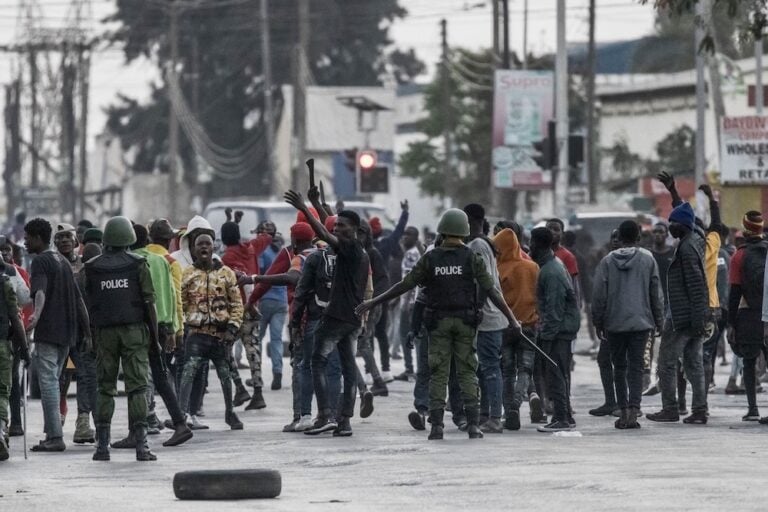(MISA/IFEX) – On Wednesday 23 May 2001, “Post” newspaper deputy editor Amos Malupenga was summoned to the Central Police station in Lusaka. He was questioned over a story he wrote in the Monday 21 May edition, in which he quoted former labour minister Edith Nawakwi saying that President Chiluba was organising thugs to rape her. […]
(MISA/IFEX) – On Wednesday 23 May 2001, “Post” newspaper deputy editor Amos Malupenga was summoned to the Central Police station in Lusaka. He was questioned over a story he wrote in the Monday 21 May edition, in which he quoted former labour minister Edith Nawakwi saying that President Chiluba was organising thugs to rape her.
Malupenga told the Zambia Independent Media Association (ZIMA) that he had been given a “Warn & Caution” statement. The police further accused him of fabricating the story.
The police wanted him to disclose the source of his information, but he declined to do so. Malupenga was released after thirty minutes.
When contacted for comment, police spokesperson Lemy Kajoba confirmed to ZIMA that Malupenga had been called to the police station to answer “a few questions.” “This is a normal inquiry by the police and there is nothing sinister about it,” he said.
He explained that Malupenga had been called to the police station to help them in their investigations regarding utterances by Nawakwi that President Chiluba had organised thugs to rape her. “We wanted to balance our investigations since Malupenga is the one that wrote the story,” Kajoba noted.
Earlier on 23 May, Nawakwi was summoned to the same police station over the same story.
Meanwhile, ZIMA Chairman Masautso Phiri condemned the police for this action. He regards such police action as harassment and intimidation meant to impede the work of law-abiding journalists. “Police must desist from such actions, which can easily be defined as attacks on press freedom and freedom of expression,” he said.


